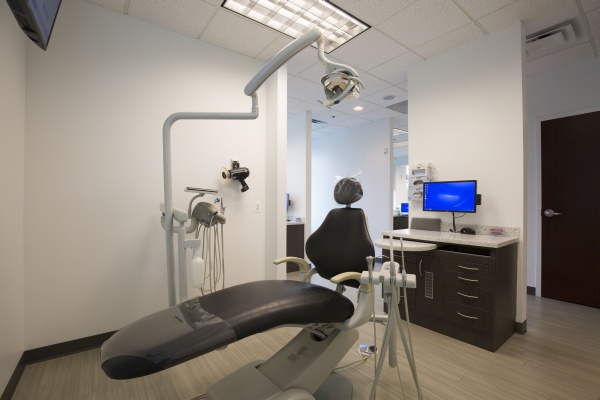When is Dental Bone Grafting Recommended?

Dental bone grafting is a treatment used to shape, restore, repair or strengthen the bones that support our teeth. It is used to add bone mass to a jawbone that is malformed, worn out, weakened or injured.
Just by listing some uses of dental bone grafting, we can already visualize situations where a dentist, periodontist or oral/maxillofacial surgeon would recommend a bone graft.
Understanding bone grafting
bone grafting is the addition of new bone to an existing section of bone. The grafted bone is meant to stimulate the growth and regeneration of the original bone. A dental bone graft procedure requires oral surgery and it can be performed by a periodontist, an oral surgeon or a maxillofacial surgeon.
The graft can be sourced from:
- The patient's own body, meaning that the patient will have two surgeries. The morbidity of this option causes most patients to opt for alternatives
- A donor. Sometimes people can donate their bones along with the rest of their organs
- Animal bones
- Synthetic materials. Synthetics do not stimulate bone growth like the other options
So, what kinds of situations would cause a dentist to recommend a bone graft as a treatment plan?
1. To correct a malocclusion
Some patients need treatment for a malformed jaw. Congenital conditions like these often need treatment that is a combination of corrective surgery and orthodontic devices.
Corrective jaw surgeries that involve bone grafts are often done by maxillofacial surgeons. These specialists are trained in the treatment of the mouth. They treat jaw deformities with an aim to restore full function to the mouth and improve the appearance of the face.
2. To treat an injury
Trauma to the face and mouth can result in a badly broken jaw. A patient with severe damage to the jawbones and teeth could need bone graft surgery to repair the jaw.
3. To restore the jaw after periodontal disease
Advanced gum disease attacks the gums and eats away at the jawbone. The result is a weakened jaw that can no longer hold the teeth in place.
A periodontist will treat a patient by removing the dead, diseased tissue in the gums and jaw. They will proceed to do a gum graft and sometimes a bone graft. Both grafts are meant to stimulate the regrowth and replacement of the tissue lost to gum disease.
After the bone graft has integrated with the jaw, the periodontist may choose to replace the teeth lost to gum disease with dental implants.
4. As preparation for dental implants
Not every person who gets dental implant surgery needs a bone graft to prepare their jaw. A person who has enough bone mass to anchor the implant will simply have the dental implant fitted. Some people can even get the abutment and the crown attached to the implant, all on the same day.
But if an otherwise healthy person's jaw is too weak, worn out or damaged to hold an implant in place, they will need a bone graft. It will be the first procedure in the process of getting dental implants.
After the bone graft, they will wait for the graft to integrate with their jaw. When the healing is done, then they will have the dental implant procedure. The wait between the bone graft and the placement of the implants can take anywhere from six weeks to a few months. It all depends on the size of the bone to be grafted.
People who should avoid dental bone grafts
A dental bone graft is one of the more involved dental surgeries there is. A person that undergoes this surgery should be healthy enough to heal quickly. Unless it is unavoidable, the following groups of people should not consider the surgery:
- Diabetics, because their wounds tend to heal slowly
- People with blood disorders that prevent the blood from clotting
- People who are on medication that thins the blood
- People with chronic medical conditions that suppress the immune system
- People who need immunosuppressants to live
A dentist or oral surgeon will always take a full medical history of a prospective patient. They will use the information to determine if the patient is a good candidate for the surgery.
If a patient does not fall in any of the categories listed, then chances are that they will be greenlit for bone graft surgery.
Get started with a comprehensive exam
A dentist will evaluate you in order to come up with the best plan to treat your dental problem. They will create a treatment plan that accommodates all your dental and medical needs. If a dentist finds an approach that is just as effective but more conservative than bone graft surgery, then they will choose that instead. If they find that bone grafting is the best option, then they will go with a bone graft.
Our practice has skilled dentists and oral surgeons who can restore your smile. Visit or call us to find out how we can help you.
Get started today…
Request an appointment here: https://www.titandentalcare.com or call Titan Dental Care at (703) 745-3227 for an appointment in our Sterling office.
Check out what others are saying about our services on Yelp: Read our Yelp reviews.
Related Posts
It is important to adjust dentures when they cause concerns to help ensure the issues are resolved and to avoid more severe concerns and the need for denture replacement. Denture adjustments may be necessary when your dentures do not fit properly, experience minor damage, or are outdated and worn down.A denture adjustment involves minor improvements…
tooth fillings offer a simple approach with little to no pain. This dental restoration treatment has long been the standard for restoring and rebuilding teeth damaged by cavities, injury, or minor imperfections such as chips or cracks. When considering different dental restoration options, it is a good idea to get familiar with how each procedure…
An in-office professional dental cleaning is a crucial aspect of maintaining good oral health. While oral hygiene done at home is a great way to keep the teeth and gums healthy, it is important to see a general dentist on a regular basis for cleanings and examinations. Dental cleanings are simple, easy, and relatively painless,…
Choosing a general dentist to straighten your teeth is a great idea. General dentists are primary care dental providers, which means they understand everything there is to know about diagnosing, treating, and managing their patients' oral health. This type of dentist is the first dentist you would make an appointment with when experiencing any dental…


